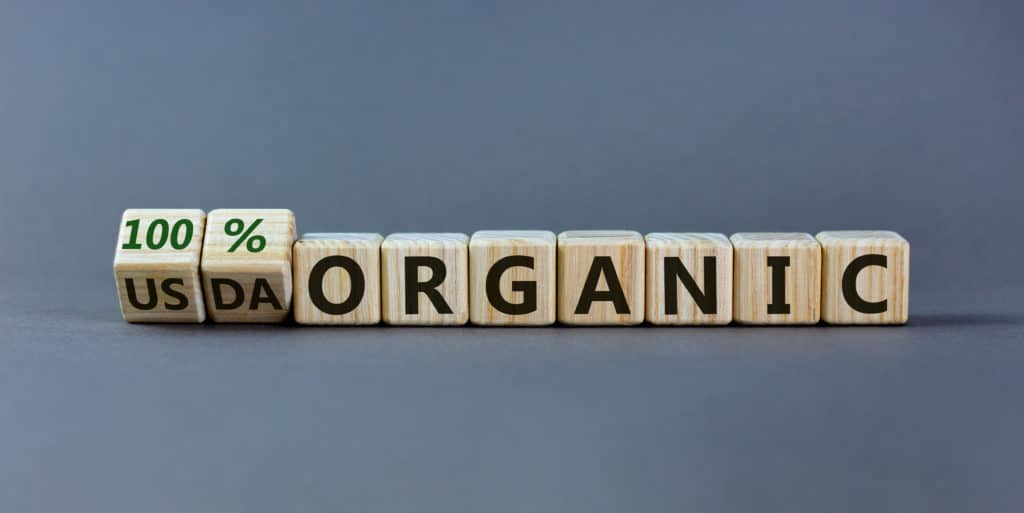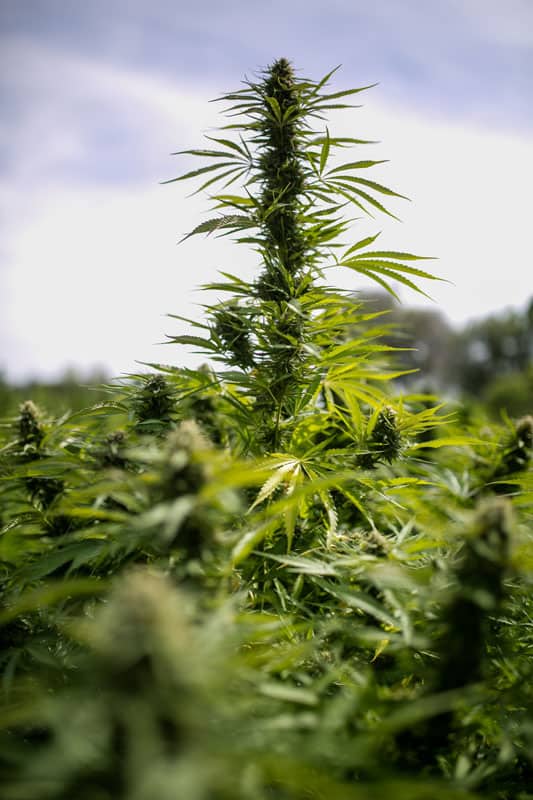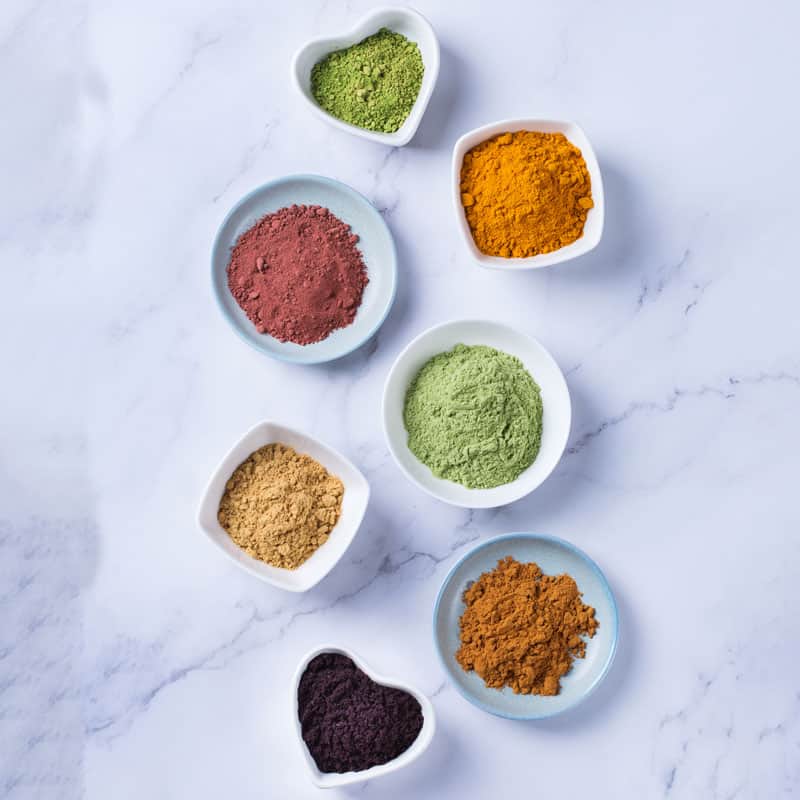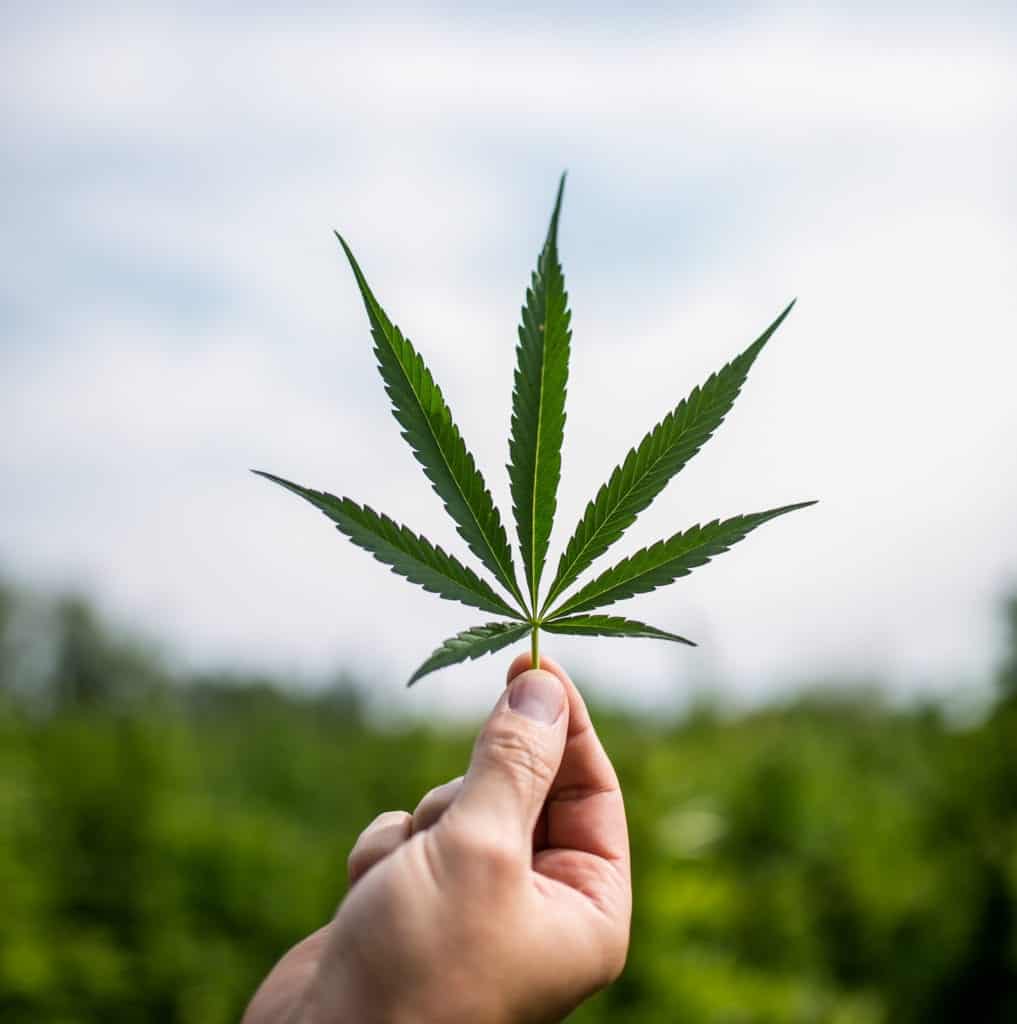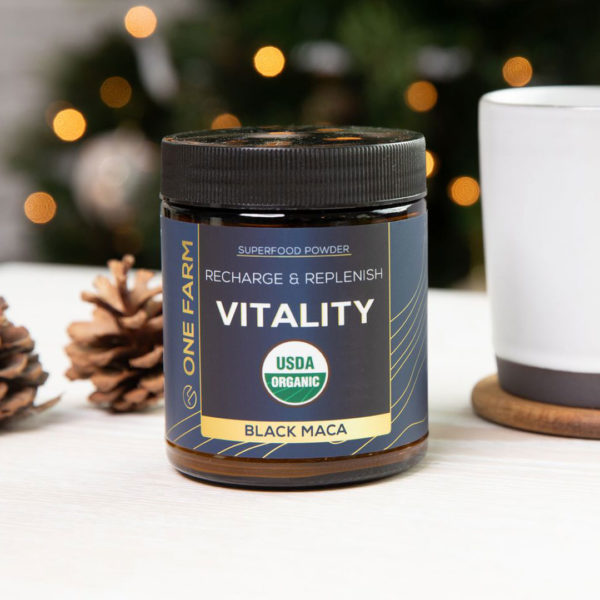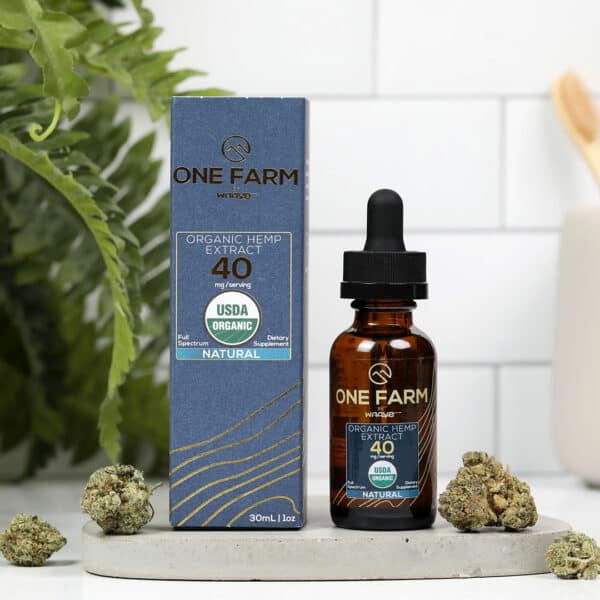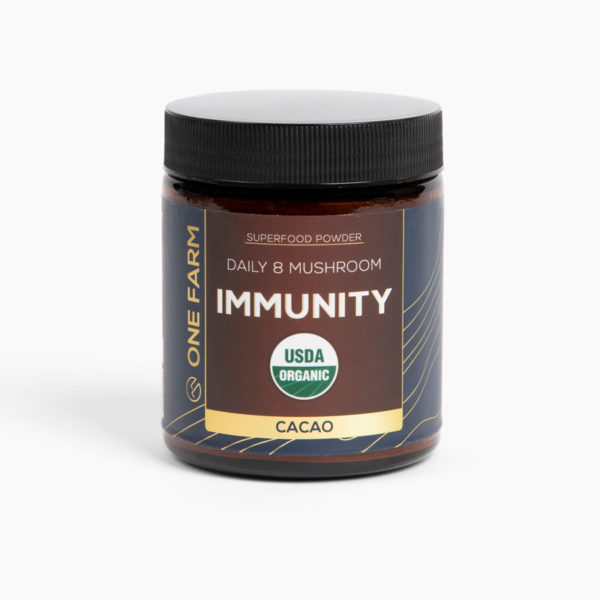ORGANIC EXPLAINED:
YOUR GUIDE TO BEING LABEL SAVVY
These days, many of us have grown used to using organicity as a synonym for healthfulness – or, in the very least, a sign of superior quality. While this may seem like an oversimplification, and in some cases is a little reductive, the fact does remain that organically grown produce represents a far better choice in terms of quality, safety, sustainability, and nutrition – four deciding factors which should, to varying extents, now underpin every choice we make in our day to day lives.

Beyond healthfulness, then, opting for organic produce is something that placates many of our worries the same instant. It embraces a far more traditional and, by extension, natural approach to agriculture – something which, as we are now seeing first-hand, benefits every individual who stands along that meandering supply chain between seed and customer.When it comes to buying CBD – whether it is for consumption or topical use – the story remains the same. Of course, the mere fact that it was so quickly taken up within health and wellness circles, and given its label as a potential blessing for those suffering a long list of illnesses and conditions, means that some manufacturers are able to conceal their non-organic practices behind CBD’s strong reputation as a health-giving ingredient. But, just like any other natural product, users will never be able to reap the full benefit if unhealthy chemicals and farming practices have been permitted to taint the final product.This is why it is so important to us that CBD customers remember the importance of looking for USDA certification, and understand why choosing organic CBD is so important – and, of course, why we put together this ultimate guide in the first place. Read more below.
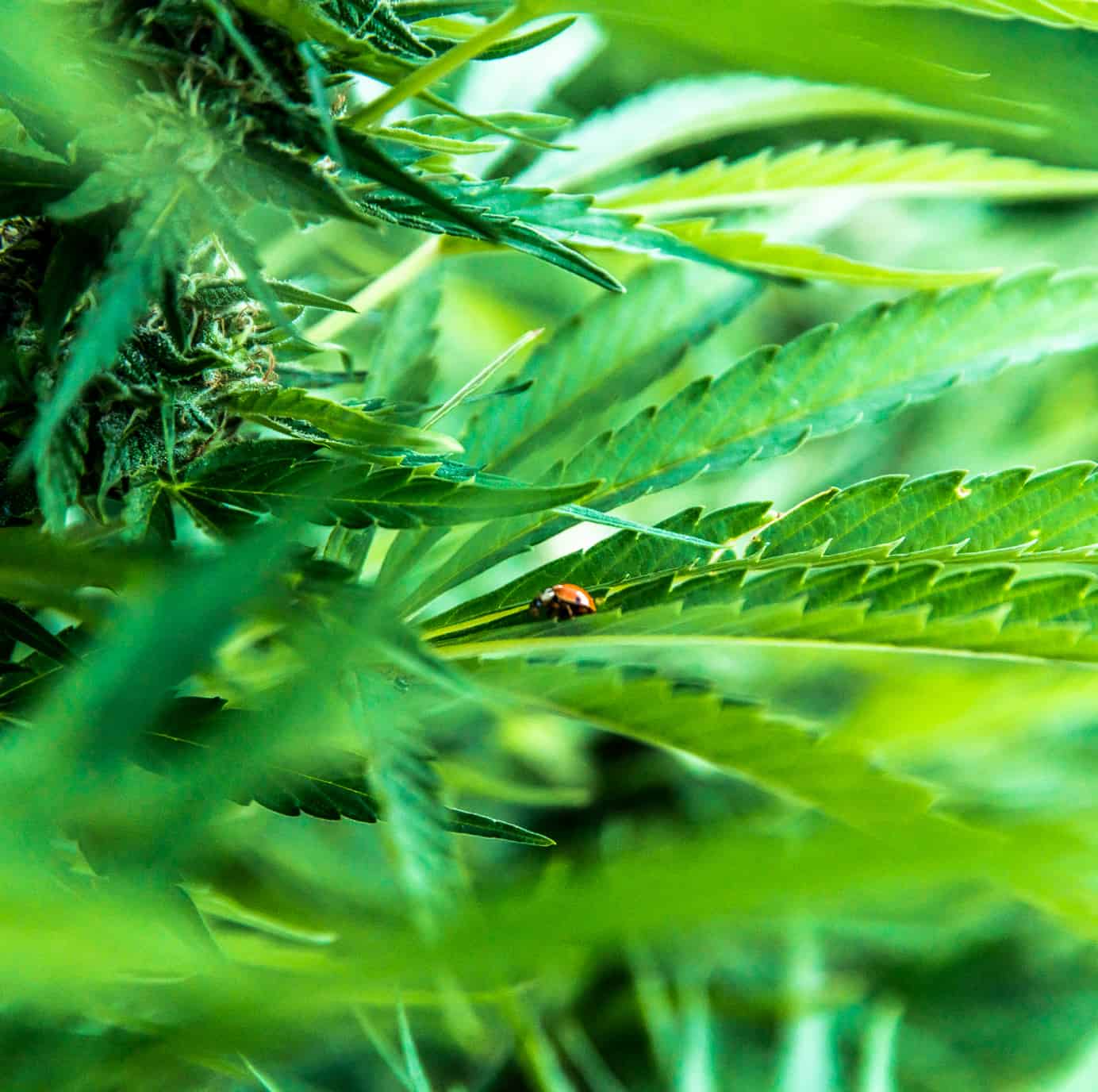
‘Organic’ in a Nutshell
Whether we are talking about fruit, vegetables or hemp, the basic definition of what it is to be ‘organic’ remains the same: produce that has been grown and processed without the use of chemicals for fertilization and pest-control, or other unnatural additives.Agriculture was never intended to meet the demands of so many, all at once. Humanity has been forced to adapt relatively quickly to the need for agriculture on a mass scale – and the only way these companies found to do it quickly, efficiently, and inexpensively was to utilize harsh chemicals that would never naturally come into contact with our food.The impact is significant. Harsh, artificial toxins leach into the soil and, eventually, our oceans, where they threaten the health of aquatic life.Similarly, while bugs do pose a nuisance to farmers and BBQers alike, a certain amount of biodiversity must exist at all times in order to allow basic biology to take its course. Processes that have maintained our natural environments for millions of years can be derailed indefinitely following the loss of just a handful of species – and the impact on humans and other species is potentially devastating.What’s more, unless the produce is washed thoroughly, those toxins also end up in our bodies. Not only can they limit the amount of good these natural foods offer to us, but these chemicals (which are, afterall, designed to kill pests) can also have significant impact on our bodies. For instance, the pesticide DCPA has been classed as possibly carcinogenic for humans – and, on produce that cannot be peeled, such as kale and broccoli, this fact alone should be enough to frighten us off non-organic fruits and vegetables.Of course, there are ways of marrying together safety and quantity – and, in this day and age, we don’t need to continue to rely on ingredients that were never intended for human (or animal) consumption. This is where companies committed to the health and wellbeing of their customers (and the planet itself) are able to shine, and offer an organic counterpart to years of destructive practices.
Why is USDA Certs Important for Organic Products?
In order to ensure a high standard that truly meets with the consumers’ expectations. However, the U.S. government has been forced to put into effect rigorous criteria, which must be met in order for a product to be considered truly organic. Only by meeting these criteria can companies definitively name their products ‘organic’, rather than using ambiguous or non-committal phrases like ‘naturally grown’ – or even ‘made with organic practices’ – which can, and do, give companies the ability to charge more for the same low quality products, without investing into more rigorous practices.
As such, certification from the U.S. Department of Agriculture (USDA) is the only way we can feel sure of the safety of these products. Growing interest in organic produce will inevitably attract those who feel comfortable targeting trusting and uninformed consumers, but it will also pave the way for a future led by safety, sustainability, and health, rather than frugality at the expense of our wellbeing.
Why Organic CBD over non organic CBD?
CBD is a cannabinoid extracted from the hemp plant – which, like any plant, draws its nutrients from the soil in order to reach maturity. As a result, any toxins or harsh chemicals contained within the soil are absorbed into the roots and, eventually, the plant itself; healthy soil will, on the other hand, produce a far healthier crop.
The hemp plant has been cultivated by humans across the globe for thousands of years for its unique properties, and non-organic fertilizers and pesticides are only necessary when growers prioritize quantity and profit over quality, sustainability, and the health of their users.
Under natural conditions – and that includes everything, from the use of natural sunlight to the absence of harsh toxins and chemicals – growers and customers can feel sure that they are actively mitigating the impact modern farming methods have wrought on our bodies, and fragile ecosystems around the world.
They can also feel sure than the final product has not been contaminated with chemicals that none of us would feel comfortable ingesting, or even applying topically. Given the long list of potential health benefits offered by CBD – whether taken as a supplement, or incorporated into skincare – it is, of course, entirely counterproductive to invest your money into a product which has been compromised since it was first planted in the ground, or since the moment the plant underwent extraction.
It is Not Just About Farming
The growth of the hemp plant represents just one stage in the process. Following harvesting, the CBD must be extracted from the hemp plant – which, provided the right practices have been followed, remains organic at this stage.CBD can, however, lose its status as an organic product if the extraction method used does not meet with the USDA’s rigorous standards. Using harsh solvents will taint the CBD, and compromise the health and safety of the final product.
Some producers of CBD products may not even realize this is happening. In other words, while they have been assured that their crops were grown without the use of chemical pesticides and fertilizers, it may be that cost- or time-efficient extraction processes are polluting the plant after it has been taken from the ground.
This is one of the main reasons why we made the decision to undertake every stage of the CBD production process on our own farm in Colorado. From planting to our precise, full-spectrum CO2 extraction method, we oversee everything in order to feel confident that the highest possible standards are consistently met – and to ensure that we and our customers can always trust in the label.
CBD can, however, lose its status as an organic product if the extraction method used does not meet with the USDA’s rigorous standards. Using harsh solvents will taint the CBD, and compromise the health and safety of the final product.
Some producers of CBD products may not even realize this is happening. In other words, while they have been assured that their crops were grown without the use of chemical pesticides and fertilizers, it may be that cost- or time-efficient extraction processes are polluting the plant after it has been taken from the ground.
This is one of the main reasons why we made the decision to undertake every stage of the CBD production process on our own farm in Colorado. From planting to our precise, full-spectrum CO2 extraction method, we oversee everything in order to feel confident that the highest possible standards are consistently met – and to ensure that we and our customers can always trust in the label.
How Do You Know Organic Means Organic?
Only companies that meet with the USDA’s stringent certification criteria for organicity (and have been overseen by a USDA NOP-authorized certifying agent) are permitted to say as much but, as we mentioned above, that has not stopped a number of producers from playing word games on their labels, and attempting to pass products off as organic when they still contain non-organic chemicals and ingredients.
As such, the only way for you to feel confident in a product’s quality is to look for the USDA’s seal. Also, learn the true meaning behind the following phrases:
- 100% OrganicThis is usually seen on raw wholefoods.
- OrganicThis means that at least 95% of the products ingredients are USDA certified organic.
- Made with organic…At least 70% USDA certified organic ingredients.
- Organic [ingredient]Used alongside a particular ingredient which is USDA certified organic. For instance, the ingredients list for jam might feature ‘organic strawberries’ alongside ingredients that are not listed as organic.
While these phrases all boast different meanings, they are united by the fact that the products they pertain to all include some, if not all, genuinely organic ingredients.
Otherwise, you need to maintain a great deal of caution. The drive toward organic products grows more significant with each passing year and, increasingly, companies who continue to eschew their responsibilities to the environment (not to mention the health of their customers) frequently employ clever, non-definitive phrases in order to suggest organicity, without needing to make the commitment.
For instance, ‘organic practices’ is a phrase that almost unanimously inspires confidence from customers but, in truth, means almost nothing when used to refer to the extraction of CBD oil from the hemp plant. Anyone can claim ‘organic practices’ on their label, even if their processes of extraction are riddled with toxic, unnatural and potentially harmful substances.
As with any product, CBD demands a certain amount of label savvy from its users. USDA certification offers the greatest reassurance of quality, and should never be sacrificed for the sake of convenience, or a few dollars.
A label is only capable of offering a limited glimpse at the many complex and intricate processes that go into creating a CBD product – or, of course, anything we consume. As consumers, we are more than aware of the fact that many companies attempt to conceal poor quality practices and ingredients behind good branding and clever phrasing, but much of the time, we are at a considerable disadvantage. For the most part, we don’t have hours of time to pour into screening a new company before handing over our money.
There are, however, a few markers we can look for (alongside USDA certification) to ensure that we are making a good investment, rather than one we will wind up regretting. While none of these factors offer any reassurance on whether or not the company’s products are organic, they do offer further proof that the company is following best possible practices for their customers.
- Is it Made within the USA?
Domestic growers/producers are subject to the high standards set by the U.S. Department of Agriculture in order to ensure our health and safety. Of course, these standards are only able to be enforced so rigidly under the USDA’s jurisdiction – in other countries, the process of ensuring that these standards are met falls on the shoulders of third-party agencies appointed remotely by the USDA, meaning that, in many instances, the USDA’s standards are diluted as the supply chain grows longer.
This may not be the case across the board, but shopping locally means that the window of opportunity for miscommunications or deliberate falsifications is made significantly smaller.
- Does it Focus on Traceability and Transparency?
Part of the problem behind the proliferation of non-organic products on the market today is the fact that many companies are just as vulnerable to the underhanded practices of non-organic producers are their customers are.
It is for this reason alone that, as consumers, we grow used to questioning any company’s ability to remain transparent about the traceability of their ingredients.
This is why, at One Farm, we decided to move all aspects of hemp growth and CBD extraction in-house, and grow, harvest, and process our own crops all within the boundaries of our Colorado farm.
Similarly, it is the reason why we only source our other ingredients from USDA certified organic farmers, rather than needlessly lengthening the supply chain and losing control over the traceability of certain ingredients.
Companies that do not readily offer transparency when it comes to their own ingredients are less likely to be investing the time and money into traceability that we all deserve.
- Is it 3rd Party Tested?
It is all well and good for a company to extol its own positives (and, of course, to skim past those areas where they may be falling short) but the most honest picture will obviously be the one painted by 3rd parties, who hold no vested interest in the strength of the company’s bottom line.
As such, any company that volunteers itself for 3rd party testing is demonstrating a great deal of faith in their own product. This is something that should stand out to all of us as a strong sign of quality – particularly when that company publishes those results on their own site.
Go Organic
It is all too easy for the mass movement toward organic produce to be lumped in with a wider interest in health and wellness products; a fad that will, inevitably, subside in the coming years.
Of course, while some wellness phenomena may well pass from popular usage with time, there are plenty of products and practices that have risen to the fore because of the value they hold for us, rather than simply good marketing and good timing.
CBD is one example of the genuinely positive changes taking place within the health and wellness industry, and, of course, ‘organic’ is another. For anyone looking to invest in CBD products, then, the choice between organic and non-organic is simple.

